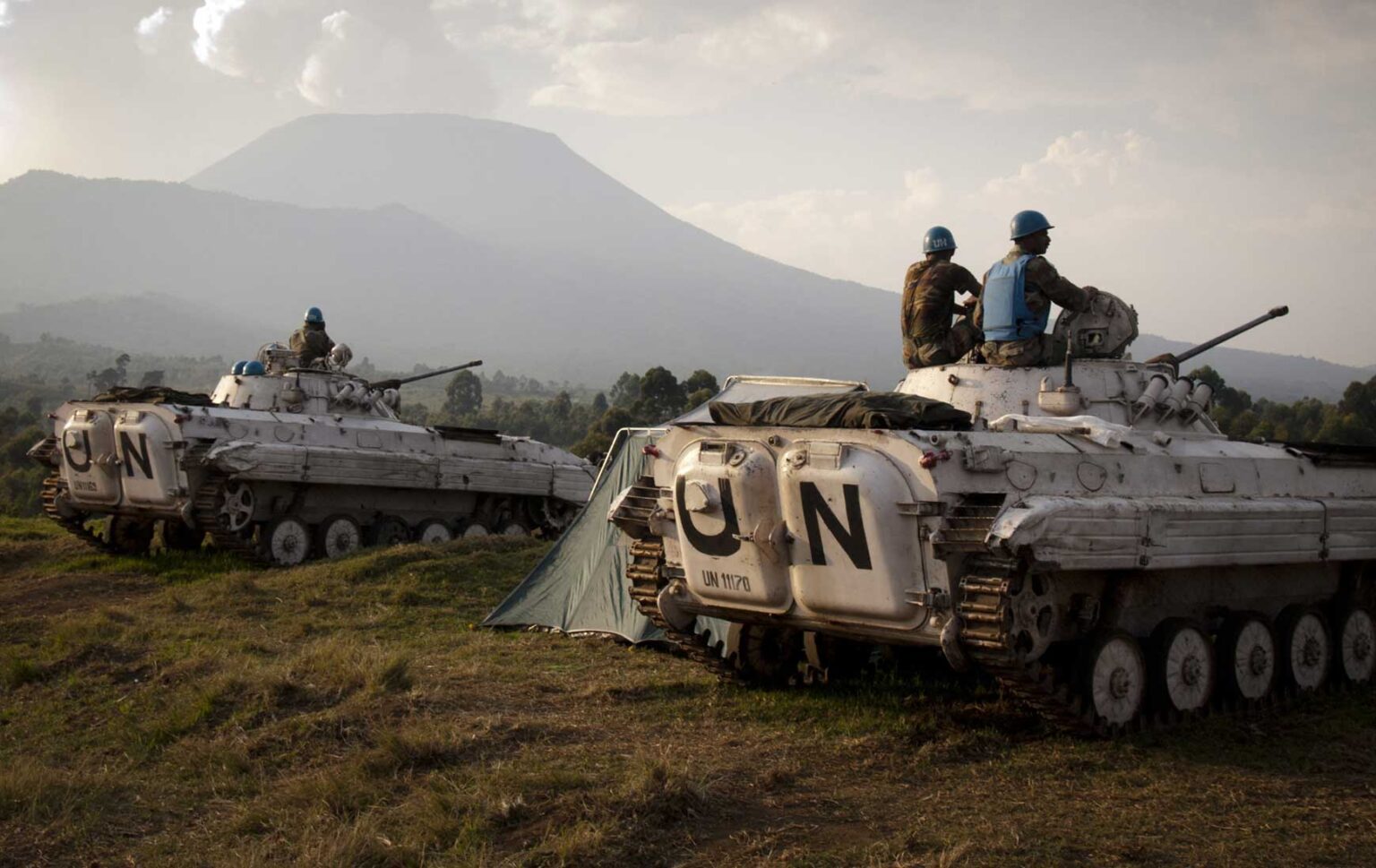By Michael Schmidt
Those who set their sights on rooting out corruption are usually focused on two fields: government and the state, and corporations and financial markets. However, in Africa, there is an immense third field where corrupt practices flourish that is usually overlooked by investigators: the foreign aid industry.
The argument that the disbursement of developmental aid to African governments and civil society organisations constitutes an “industry” in its own right is unusual in the first place, but the massive sums of money and a huge number of employees involved give it a gravity of such pull that it distorts entire national political economies.
Academic studies of aid effectiveness, such as a 2013 study of 53 African countries by Simplice Asongu of the African Governance and Development Institute and Mohamed Jelall of the Al-Makrizi Institute for Economy, which found that foreign “aid channelled through government’s consumption expenditure increases corruption,” or a 2021 study published in the Development Studies Research journal, which concluded that “aid increases corruption in African countries,” tend to focus on the misuse of aid by recipients and ignore corruption within aid agencies themselves.
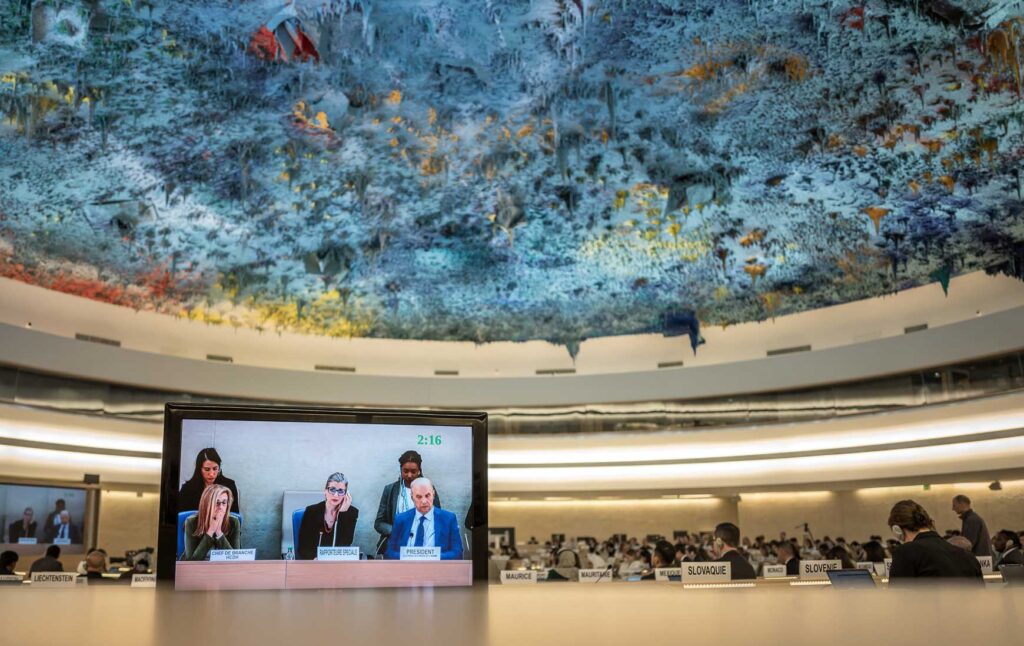
In his 2015 book, The Rift, which I reviewed for Africa in Fact here, Alex Perry, former TIME magazine bureau chief for Africa, noted that the international aid industry amounts to a “global trade” then worth $134,8 billion, employing 600,000 people. Importantly, the sector’s wealth and power generate currents and whirlpools of self-interest within the United Nations (UN) itself as well as within other multilateral institutions, donor agencies, and recipient countries that run counter to the achievement of the UN’s sustainable development goals of an inclusive, sustainable and prosperous global biosphere, society, and economy by 2060.
The UN system directly employs at least 125,000 staff, a number that grows each year, and has a total revenue of over $74 billion (almost three-quarters of which is member state funding, with the rest spread between private donors, the European Union, investments, and other sources), of which it spends $56 billion/year, including $41 billion on humanitarian and development assistance, and $9 billion on peacekeeping. Naturally, it is in the multibillion-dollar procurement of goods and services that much corruption occurs.
As veteran journalist Claudia Rosett wrote in Commentary, despite attempts at reform, the UN “reports to itself alone… operates with great secrecy and is shielded by diplomatic immunity. One of its prime defences, indeed, is the sheer impenetrability of its operations. It has become a welter of so many overlapping programmes, far-flung projects, quietly vested interests, nepotistic shenanigans, and interlocking directorates as to defy accurate or easy comprehension, let alone responsible supervision.”
Perry is immensely scathing about the aid industry in Africa, which was already, at $57,1 billion, “the biggest business on the continent,” with the combined output of its 20 poorest countries. In fact, he rates official development assistance (ODA) as among the main threats to Africa posed by “three ruling groups” possessed of “ignorant and hypocritical” ideologies rooted in colonial-era misconceptions of the continent: “aid workers, despots, and jihadis”.
He stresses, for example, that a mid-level UN employee at Goma in the eastern Democratic Republic of Congo (DRC) earns, when all their salary and benefits (travel, per diems, children’s education, etc) are taken together, more than the president of the United States. And Perry’s fieldwork revealed UN employees luxuriating in air-conditioned compounds, barely interacting with the people they were sent there to “save”.
Globally, ODA has grown more than fourfold over the past 60 years, from $38 billion in 1960—a year in which 21 African countries gained independence—to $210,7 billion by 2022. The African component shrank during the pandemic, but climbed again to a quarter of all aid at $53.5 billion in 2022.
A few years ago, I was contracted to do an investigation for a major donor outfit into whether there were any problems with the way in which its donations were managed, used, and accounted for by the United Nations Development Programme (UNDP). The UNDP has been the hub for all UN agencies since 2005, when UN Secretary-General Koffi Annan, in trying to better articulate the UN’s varied developmental efforts, put the UNDP in charge of a new super-network, now called the UN Sustainable Development Group (UNSDG), which coordinates all 36 UN funds, programmes, specialised agencies, departments, and offices that play a role in development.
This has made the UNSDG supremely powerful and, thus, the ideal entity to study for anyone examining corruption in the development aid system. Despite the fact that it is a tiny outfit, the UNSDG occupies the entire 27th floor of the UN building in New York City, and the UN Secretary-General will reportedly often drop by and talk to its handful of staff.
The donor for whom I was working had, at that stage, a total portfolio of $1,4 billion managed by the UNDP and annual expenditure of $400 million in 19 countries, so they had enough skin in the game to be worried if things went wrong on the 27th floor, or in any of the innumerable in-country field offices that radiate out from it. Because of the sensitivities involved, my interviews with UNDP/UNSDG staff and field officers were conducted on condition of anonymity.
The central problem with the UNDP stems from another UN policy aimed at simplification through centralisation: the “single audit” principle. In the agency’s own words, “any review of UNDP activities by an external authority, including any governmental authority, is precluded; instead, a) the United Nations Board of Auditors (UN BoA) retains the exclusive right to carry out external [sic] audits of the accounts, books and statements of UNDP; and b) the Office of Audit and Investigations (OAI) retains the exclusive right to carry out internal audit of the accounts, books and statements of UNDP.”
Let that sink in: despite the billions of dollars in play, governments, funds, and global donor agencies on whom the UNDP depends for its own livelihood, as well as responsible recipient governments and NGOs, are outright prevented from double-checking the UNDP’s figures or even seeing the UN’s self-administered audit results.
Although the single audit principle has been eroded in recent years as donors and governments come under pressure to demonstrate transparency and efficacy, and conduct partially audit-like “spot checks” and “verifications” of programmes, such unaccountability naturally allows for profligacy and corruption at the highest levels.
On the 27th floor, one staffer said: “There is gross overspending on flights and per diems; this can get crazy, but is not capricious, it’s just policy: if the flight is more than eight or nine hours away, it has to be first class and direct, if possible. You can see line items for flights for millions of dollars. This is uncapped.”
UNDP/UNSDG staff frequently flew first class to Geneva on Swiss “just to have lunch and shoot the breeze, covering less work than could be done in a quick Skype or email conversation.” Splurging by the top brass on international junkets also extended to large summits all over the world attended by the UNDP, which are, according to a staffer, “a garden of corruption and over-expenditure: people show up and sponge money in the name of doing something vague. These summits have been examined with less scrutiny than the Olympics – but the summit attendees perform similarly.”
Over-expenditure on summits by the UNDP ranged from unnecessarily large delegate teams with all their attendant top-drawer per diem, hotel, and flight costs, to exorbitant consultancy fees, inflated venue hires and so forth. One staffer reported: “I flew 25 people down for a conference, and some flights were $25,000 each, and they would yell at you all day long if it wasn’t the flight they wanted.”
And just who are these prima donnas with the plum jobs? Weirdly, 27th floor staff are mid- and low-ranking officials, but their true status is demonstrated by the fact that they have almost unfettered access to top-ranking officials in all UN agencies. With no proper salary-grading system at the UNDP, a staff officer said there was “a lot of play in terms of salaries and funding; this is incredibly political and discretionary. Your … accomplishments and pedigree can mean nothing.”
One field officer reported: “The UNDP was growing really fast, and so there was not a proper recruitment process. People were not qualified enough to know how to use the money coming in, and there was a lot of money coming in …”
Cases had arisen where rampant nepotism saw money intended for local communities funnelled through fly-by-night NGOs established by friends and family of UNDP staff. One field officer said this had occurred in the Philippines over 2014–15, where EU European Commission money was siphoned off. “There was no oversight,” the field officer recalled, “and the European Commission tried to do an audit and find out where the money was going, but the UNDP refused to do it; they changed over their staff, but they didn’t release any information.”
In 2020, the Financial Times reported that a leaked internal UNDP audit showed “financial misstatements” worth millions of dollars on projects funded to the tune of $7 billion by the World-Bank-originated Global Environment Facility (GEF) around the world. “The report highlighted problems, including signs of ‘fraudulent activities’ at two country offices and ‘suspicions of collusion among the various project managers’ at another, without naming the countries.”
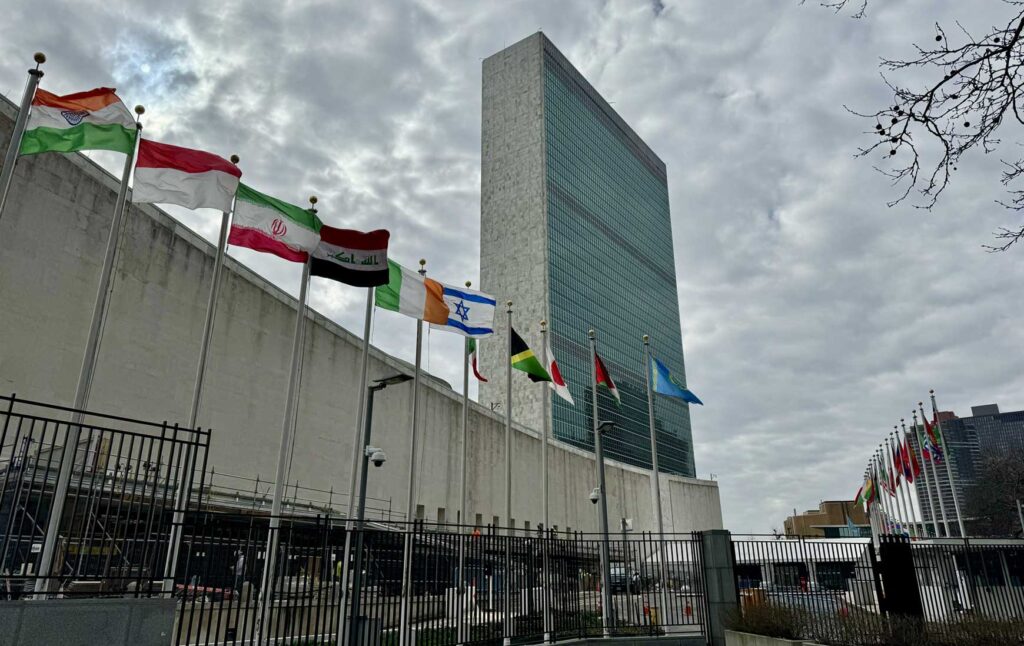
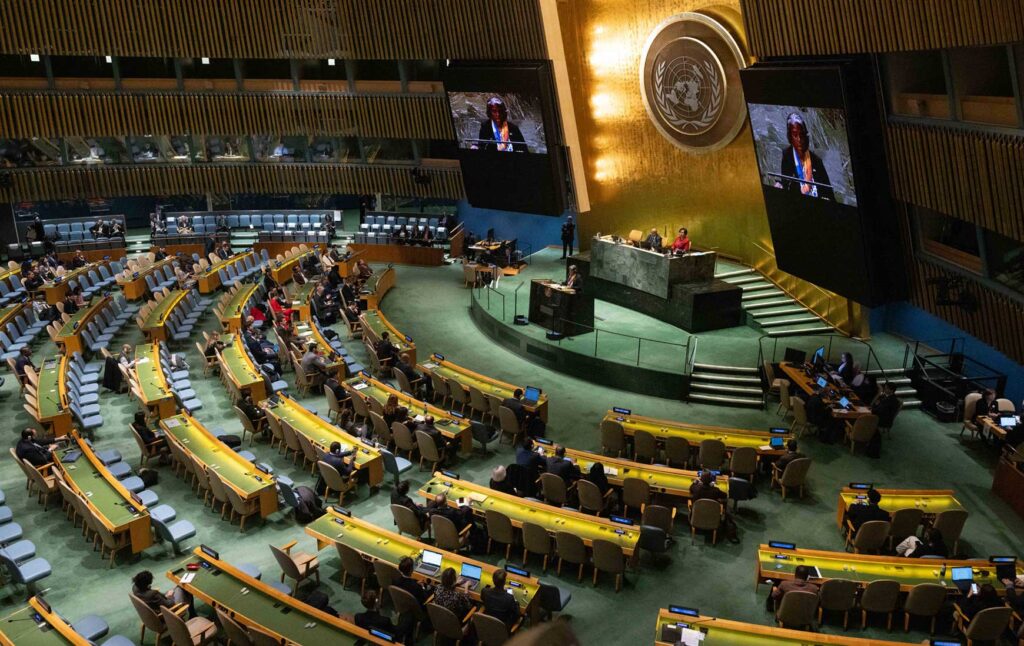
The journal said that the audit “comes against a backdrop of rising concern from some donor countries over management and oversight issues at the UNDP.” The UNDP responded, saying it “takes all cases of financial mismanagement and other irregularities extremely seriously,” claiming the project was “subject to an intricate system of regular reviews, independent assessments and audits.”
By and large, everyone works on contract, and salaried positions are rare, but staff transfer between UN agencies every two to three years; this in turn means that staff circulate in a large pool and can shift into new fields with zero relevant expertise. In some cases this has led to mission creep into areas in which the UNDP has very little experience, especially disaster relief and peace-building in conflict zones where the physical chaos created more opportunities for fiscal chaos and corruption.
“In… places when it comes to civil war and humanitarian responses, the UNDP has less scrutiny over what they are doing so there is more mismanagement of funds,” a field officer said. Mismanagement has included inflating service-provider costs, paying for research that is never used, or claiming that civil society organisations had endorsed reports that they had not been consulted on.
Although with most donor grants, the UNDP is only supposed to spend 25% on their own staff, one field officer claimed that “in most cases, in most countries, they are exceeding it… Human resources and just plain staff costs are very high for projects. That is a concern for all of us working in the field because there is scrutiny now with development aid coming in that we need to use the money more efficiently.” UNDP over-expenditure on its own back-office distorts donor spending and bedevils project sustainability on the ground.
And while laissez-faire prevails higher up the food chain, field officers sweat under the microscope and have to account for every cent. A staffer said: “We didn’t have to make reports on our progress at the [UNSDG] or the UNDP, but we demanded that from our field officers… What your targets are, including GINI coefficiency, corruption indicators, access to democratic institutions, etc, are very broad at central level and incredibly specific at field levels.
“The field offices are precarious: they are on the end of that fulcrum and get swayed and messed about all the time. The UNDP can undercut a field office and weaken it in practical and political ways – for instance, channelling funds through the government and then saying the field office should get their funds from that government, which will never happen.”
Things get really murky when the UNDP/UNSDG meddles in the internal politics of recipient countries. Disbursements made via the UNDP as foreign direct investment (FDI) can sometimes be characterised as gross over-expenditure, particularly when the state is the recipient and when its conditions are very broadly framed, thus decreasing accountability.
A UNDP staffer said that “FDI is a big problem because the accounting, monitoring and evaluation within the field offices and agencies can involve fudging the numbers… spending, overspending or lack of spending can simply be justified by ‘a lack of good governance’.”
Most worrying of all, it is claimed that the UNDP sometimes misuses its funding allocations to either create high-risk areas—thus justifying a lucrative, continued UNDP presence in a country—or manipulate the political structure of a recipient country if it is deemed undesirable.
A UNDP staffer said that if their country offices received less cooperation from governments and arms of state than what they desired, the UNDP could use its “development leverage” to starve them of funding, refuse to hand projects over to the state as the primary funding recipient when the time was due, or force the replacement of ministers who were not in line with the UNDP’s agenda.
And exactly what that agenda is has become increasingly obscure as the UNDP embarks – in some instances – on trying to become the primary recipient of its own funding.
The UNDP was, a field officer said, “setting up organisations that are registering and applying for the grants and putting UNDP as the principal recipient.” These UNDP-started “NGOs,” such as the Middle East Network for Legal Aid (MENAL), which it had set up in the Middle East – North Africa region, were then staffed with UNDP people. This loop generates money that circles back to the UNDP—money that should rather have gone to the government or legitimate civil society.
In effect, the UNDP has evolved into an almost wholly unaccountable multibillion dollar multinational – though it survives purely on tax-based state, investment, and charitable funding, yet pays no tax – the main objective of which mutated to increase the size of its own well-heeled personnel and budgets at the expense of hard-pressed projects on the ground combating issues such as poverty and inequality in regions like Africa.
It is probably worth saying that my big UNDP donor client ran out of money to fund my investigation, so the report was never published.
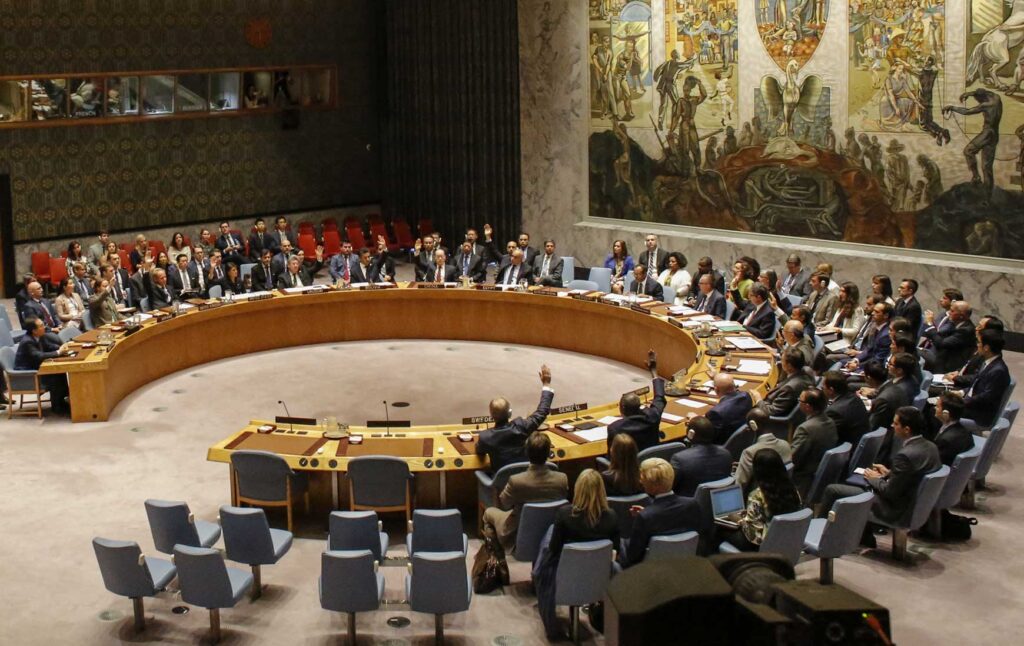

Michael Schmidt is a Johannesburg-based investigative journalist who has worked in 49 countries on six continents. His main focus areas as an Africa correspondent for leading mainstream journals are emerging and high-end technologies, political developments, conflict resolution and transitional justice, and on the continent’s maritime and littoral spaces.


